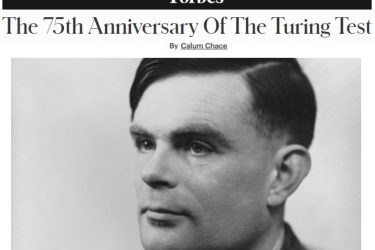The third in a series of un-forecasts* – little glimpses of what may lie ahead in the century of two singularities.
As promised, this one is more optimistic.
Most professional drivers have lost their jobs, and although many have found new ones, they rarely pay anything like as much as the drivers used to earn. A host of other job categories are becoming the preserve of machines, including call centre operatives and radiographers. A few people still cling onto the notion that new types of jobs will be created to replace the old ones taken by machines, but most accept that the game is up. The phrase “Economic Singularity” is in widespread use.
Pollsters report what everyone already knows: there is a rising tide of anger. Crime is soaring, and street protests have turned violent. Populist politicians are blaming all sorts of minorities, and while nobody really believes them, many suspend their disbelief in order to give themselves some kind of hope.
The government knows that it must act quickly. In desperation it enacts legislation which was ridiculed just a few months previously.
it offers a separate, higher level of unemployment benefit to people who willingly give up their jobs to others. In addition to elevated unemployment payments, these so-called “job sacrificers” are allowed to live in their existing homes, with bills and maintenance paid for by the government.
In addition, they receive free access to a new entertainment service which allows them to stream a wide range of music, films, and video games. This new service is funded by a consortium of American and Chinese tech giants who now occupy all of the top ten positions in global rankings of companies by enterprise value thanks to their enormously popular AI-powered services. (Netflix was acquired by one of them for a gigantic premium to stop it protesting.)
Governments around the world are in negotiations with the tech giants and other business leaders about making some of the basic needs of life free to jobless people, including food, clothing, housing and transport. They argue that innovation will continue to improve the quality and performance of each product and service thanks to the remaining demand for luxury versions from those who are still employed, many of whom are earning enormous sums of money.
It has not escaped the attention of policy makers that a gulf is opening up between the jobless and those in work. Nobody has yet suggested a generally acceptable solution.
* This un-forecast is not a prediction. Predictions are almost always wrong, so we can be pretty confident that the future will not turn out exactly like this. It is intended to make the abstract notion of technological unemployment more real, and to contribute to scenario planning. Failing to plan is planning to fail: if you have a plan, you may not achieve it, but if you have no plan, you most certainly won’t. In a complex environment, scenario development is a valuable part of the planning process. Thinking through how we would respond to a sufficient number of carefully thought-out scenarios could well help us to react more quickly when we see the beginnings of what we believe to be a dangerous trend.


